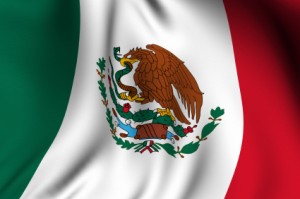As IT offshoring hub, Mexico is all grown up


The consensus: through the benefit of geography, strong governmental support and increasing educational activity, it's a natural move for multinational organizations with operations in the United States.
According to a Gartner study, Mexico is the 4th largest provider of IT services globally, after India, Philippines and China. And with 65,000 students in IT and engineering disciplines every year -- the highest in Latin America by far -- it's a natural fit for the growing practice of multi-sourcing.
"10 years ago, Mexico was in no one's greater screen," MexicoIT CEO Alfredo Pacheco-Vasquez said.
But with NAFTA and a strong public-private partnership, it's come a long way, he said. "In 2010 alone, Mexican government gave away $700 million to work with IT service companies and for global companies to establish a presence in Mexico."
Tom Taylor, vice president at global IT consulting company Neoris, said multi-sourcing is now a best practice for organizations.
"There are so many large, multinational companies doing business in Latin America that [countries] are, by instinct, evolving to create capabilities beyond their initial, low-cost headline," he said.
Santiago Gutierrez, chairman of local IT organization CANIETI, said the country's IT sector has matured.
"We're no longer cheap," he said. "We're happy that we're no longer cheap. Mexico is competing on ability and innovation."
For Neoris, Monterey is a primary business center, working with company operations in Miami, Taylor said.
"It compares pretty well to New York, statistically," he said. "It's a little better than Las Vegas but far better than other metropolitan areas like Detroit, Philly, D.C. and so on."
Being on the same time zone shouldn't be underestimated, Gutierrez said.
"You can get a whole lot of manufacturing and components and that component is available in 24 hours in the customer's facility in the United States," he said.
Pacheco-Vasquez agreed.
"If a client wants more of a hands-on approach on a project, Mexico is definitely the right option," he's said. "The same time zone helps a lot. When we work, you work. There is no problem. Mexico is less than a four-hour flight away, giving you access to a lot of meetings. And once you establish a good relationship, there's no need for you to come down to Mexico."
Mexico has more than 70,000 global companies established in the country, Pacheco-Vasquez said.
"All the leading IT firms are here," he said.
But what about crime? Nearly everyone has seen frightening headlines about drug cartel violence in the country -- surely not a reassuring fact for companies looking to offshore IT services to Mexico.
Gutierrez said while the problem has been prevalent for decades, it's recently flared up in the press because the president of Mexico is fighting organized crime directly for the first time.
"No president before had ever tackled the problem the way it has been tackled today," he said. "So previously what hasn't come to the surface has to."
Still, the fact is that it's causing a lot of insecurity and concern. But it shouldn't for IT organizations, he said.
"Has criminality in Mexico affected the IT industry in Mexico? I dare to say not at all," he said. "Organized crime has impacted mostly the manufacturing industry, in the transportation and logistics of the goods that go to the border line. The other industry is retail: small businesses that are subject to corruption and to coercion, so to speak. [IT companies] haven't been hit at all."
Gutierrez said companies should factor in the cost of security just as they would normally do in their home country.
"Most MNEs [multi-national enterprises] established in Mexico allocate 2 percent of their OpEx [operating expense] to security costs," he said. "The average in the U.S.? 7 percent."
"[In Mexico] it's a cost of no concern," he said.
In the end, Taylor said the organization must focus less on geography than best practice. Mexico can fit both, but it needs to make sense for the business' activities.
"I have clients that have said, it's got to be Mexico, because of its location or capabilities," he said. "Where it's our discretion, I have options: I have people in Colombia, Argentina, Spain and Dubai. Sometimes it makes sense to use people in other locations because there are local actions to perform. It's really a collaboration."
The good news? Mexico demonstrates little of the traditional offshoring challenge of getting to know a new culture.
"There is a level of quality that is comparable to what I was accustomed to in other Tier 1 organizations," Taylor said. "Project planning expertise, following a methodology -- all that is pretty normal.
"From a culture standpoint, it's much easier to get aligned on expectations. Yes means yes. It doesn't mean that I understand or know what the next steps are, but I find it easiest to align everyone around expectations. If anything, there's more of a conservative nature that I've found. If there is a risk profile, I and my clients often want to be on the other side of it."
In the end, when it comes to global sourcing, geopolitical risk trumps everything. How healthy are public finances? How healthy are the macro policies and practices put in place and controlled by government?
"You could ask the same thing about the U.S.," said moderator Laura Koetzle with a laugh.
More from the 2011 Forrester IT Forum on ZDNet: